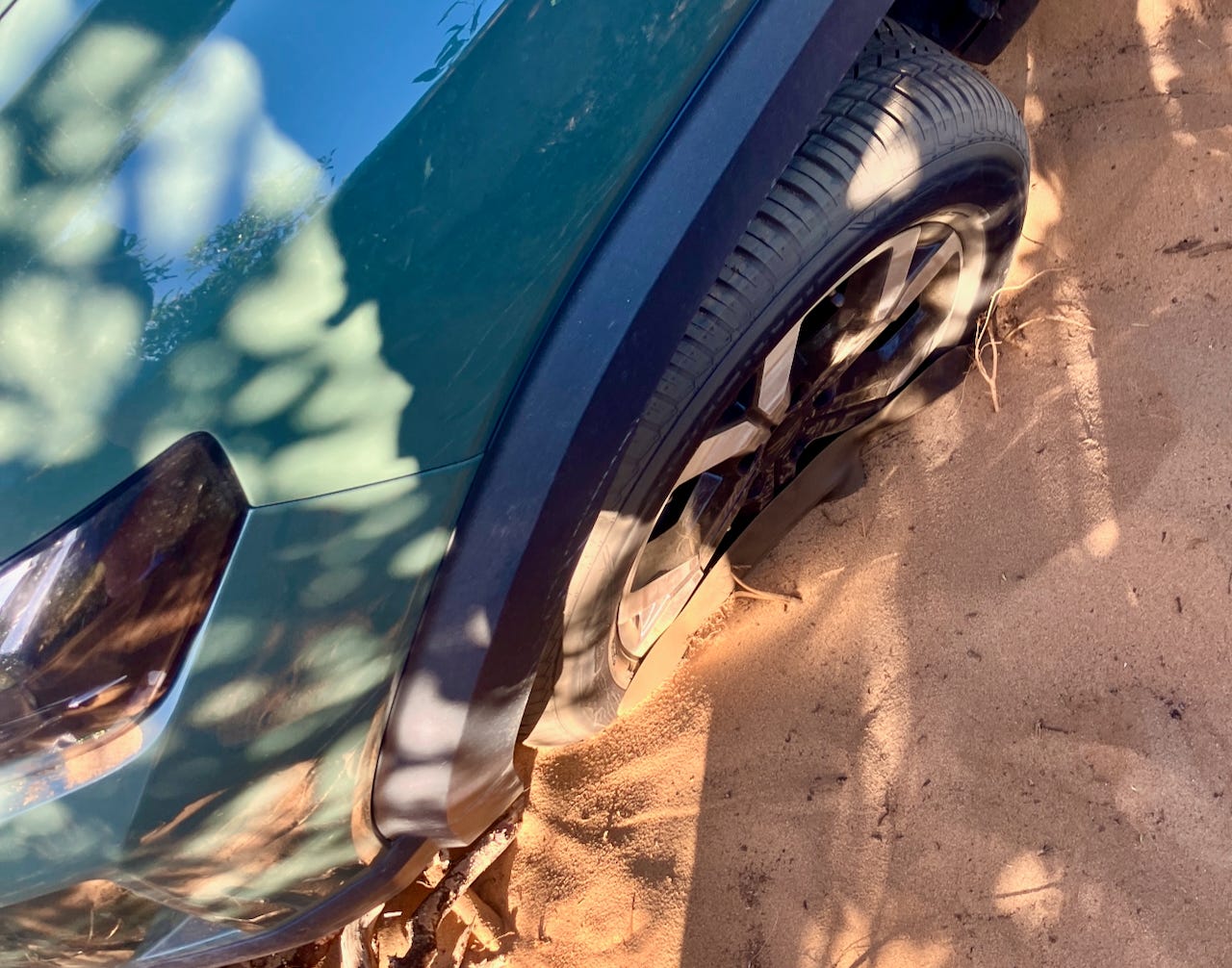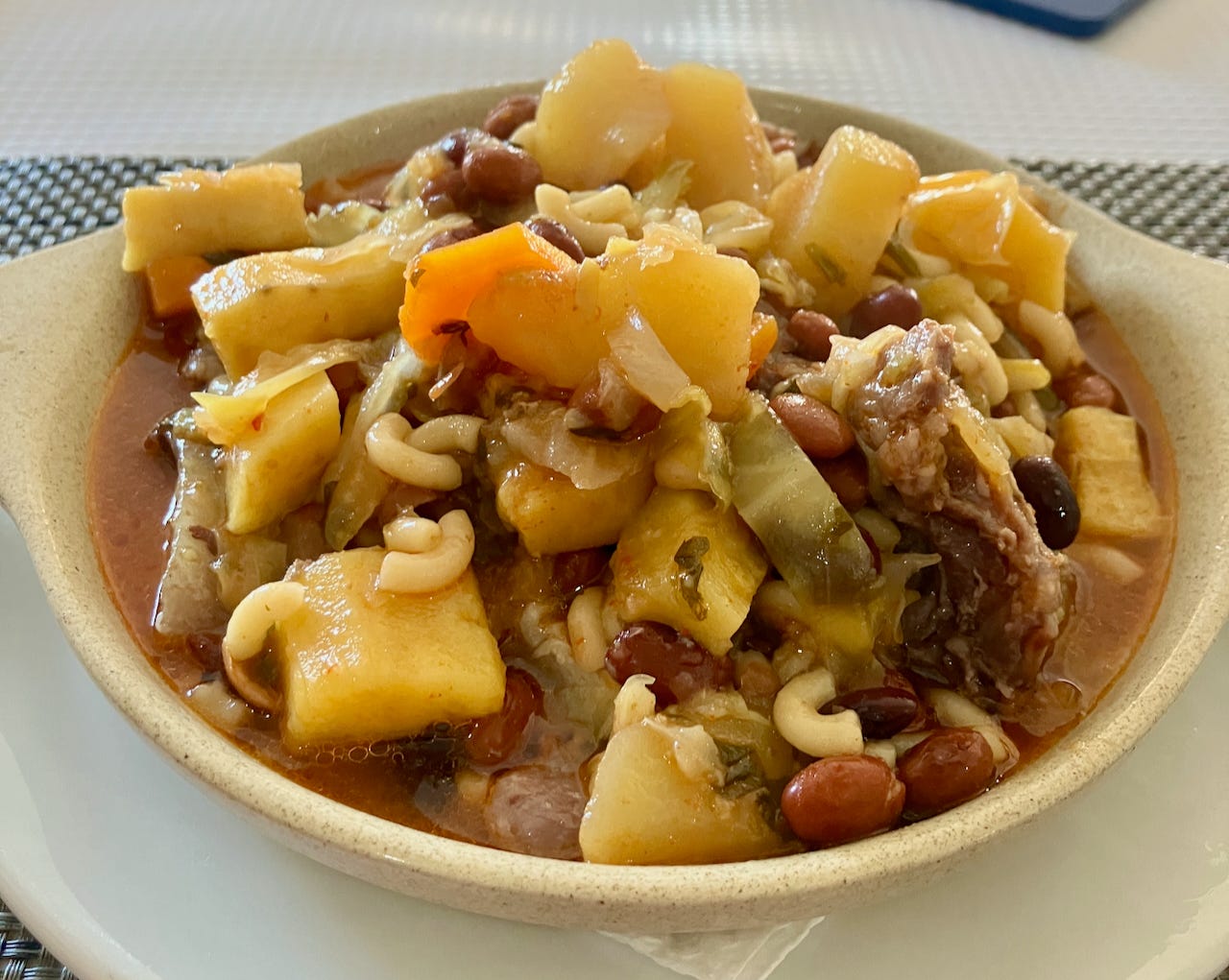The CHEGA! Train Picks Up Speed
As The Country Asks How Many Immigrants, and of What Type, To Take On Board
Our son, age 20, has been here for most of the month of May. It’s really nice to have him here, but I’m already sad that he’s leaving in a few days. I guess this is modern parenting. I’m happy that he’s in college and doing well there. I’m happy that he’s heading off to a job with real responsibility at the summer camp he loves, in Minnesota. But both mean we don’t see him much, which would be true even if we weren’t living in Lusitania (a historical nickname for Portugal).
I asked M whether he would consider spending an entire summer here with us, even just as a thought experiment. No way, he said. The thought bored him to tears. I don’t quite understand why. I mean, we live in an area with beaches and some things to do. But it’s true it’s mostly for families, and there’s not a lot for a young person other than surfing and swimming. M likes those, but not enough to make a summer out of them.
Onto other subjects.
CHEGA! Arrives
Snap elections were held here earlier this month, after a mini-scandal involving the Prime Minister, Luís Filipe Montenegro, brought his government down. That’s how it works in a parliamentary system. Montenegro’s party, the Partido Social Democrata (PSD), or Social Democrat Party, got about a third of the votes in this latest national election, through the center-right alliance (AD) of which his party was the principal component. That may not sound like much, but it was more than any other party received—and more than in the previous election, I believe. So the mini-scandal means the PSD now has even more power.
That was one takeaway.
But the bigger headline was that O Partido Socialista (PS), or Socialist Party, which has historically traded power with the PSD, got fewer votes than ever. Portugal has half a dozen political parties, but the PSD and the PS—the center-right and center-left—have taken turns running the government for the last 50 years, since the country became a democracy after the Carnation Revolution in 1974. (More on that later. My short take is that it wasn’t a revolution; it was a coup rebranded as a populist revolution.)
So who got the votes the Socialist Party lost? For the most part, CHEGA! That was the other big headline. What is often called the far-right party has grown stronger again. As the Portuguese-abroad vote is still being counted, it’s likely CHEGA! will end up with more delegates in Parliament than the Socialist Party. That’s an earthquake.
CHEGA! was only founded six years ago. The exclamation point is part of its name, which means “Enough!” It also can mean “Arrives!” or “We are arriving!” All these meanings work well for an up-and-coming political party. The face of its handsome leader, André Ventura, is now seen everywhere.
The reason CHEGA! has grown so quickly is a backlash against immigration here. This includes some resentment of higher-economic-end immigration, like our family. But it’s mostly aimed at lower-end immigration from Pakistan, Bangladesh, Nepal, and India. In just five years (note the timing matches CHEGA!’s rise), these South Asians have become a very visible presence in the country, particularly in Odemira County, where we live.
The Socialist Party, which has lost so much support, crafted the policies that allowed them entry quickly and in large numbers. So a loss of support is understandable. I haven’t yet discovered the principal rationale for their open door policies. I know many of these immigrants work on farms around Odemira and elsewhere in Portugal, so perhaps businesses requested easier access to labor. But I also see many young South Asian men just idly standing around during working hours. Portuguese now compete for rentals with groups that house 20 or 30 men in homes designed for 1-2 families.
The young people I’ve talked to in our town all preferred CHEGA!—and strongly. That’s telling.
These South Asians, mostly young men, are not bad people, and I sympathize with them. They’ve come a long way and are here legally, although many have stretched the laws in ways that would take some explaining to make clear.
It’s also easy to understand why locals, including me, chafe at their presence. Many, perhaps most, don’t care to learn Portuguese. They’re not interested in assimilating. They’ve also made it harder to find housing, since they’ll live 20 or 30 to a residence that would normally be for a single family. These arrangements are made through middleman companies, perhaps the ones that brought them here. It’s also true that many of these young men just want to use Portugal as a gateway into Europe—Germany in particular. The plan seems to be: come to Portugal, get some kind of legal status, and move on. I don’t know why Germany is such a favorite, except that its policies have recently been favorable to immigrants. That may be changing, as anti-immigration parties gain ground there.
I don’t find it easy to talk about these issues on broad terms. It’s even harder when it gets personal. Our daughter, EC, attends the local school, where some of these South Asian immigrants’ children also go. EC is friends with both a Nepalese girl and an Indian girl. I’ve met one of their mothers, who usually dresses in Indian-style clothes. She plans to move to the United States, where she has relatives.
The dynamics of CHEGA! are similar to some of the dynamics around the followers of Donald Trump in the U.S. It’s not considered polite here to be openly against brown-skinned immigrants. CHEGA! is saying out loud what many of its followers have been saying privately.
Ventura and CHEGA! are sometimes called fascists. Does favoring more controls on immigration make you a fascist? I don’t think so. There’s talk that Ventura has broken the “cordon sanitaire” that was meant to exclude him from governing.
But when in comes to Trump and some of his supporters, the charges of being fascist or at least authoritarian do have validity, it seems to me. I worry though, that I am being as quick to judge as some people are quick to judge CHEGA! here.
That’s all I have to say at the moment on a messy situation.
Sand Our New Car Got Stuck In Reveals Learning Curve
Luckily, it was K’s idea to test our our new four-wheel-drive 2025 Dacia Duster by exploring some sketchy roads that would take us to some less-used beaches (because they are only accessible by bad roads.) We had driven only about a minute in a road of pure sand, when we got fully stuck going up a hill of pure sand.
Wasn’t this not supposed to happen with our 4 x 4?
The whole family was in the car. While EC played in the dunes, and K watched her, M and I spent an hour trying various things to free the car. Finally after digging sand out from one wheel, and from underneath the car, I managed to reverse it and get out. It wasn’t easy.
Back home, my Facebook group of Dacia owners, as well as Youtube videos they sent me to, said “No!" You can’t go anywhere in even the best of four-wheel drive cars. And particularly with sand, there is a lot of learning to do. First how to drive on sand - deflate the tires, for one - and second how to get unstuck, because that is going to happen to even with the best of drivers and best of cars.
So I am happy to learn of my own ignorance. I think our new car will give us access to a lot of the bad roads around here. But on the worst, I have some learning to do.
Tummy Time: Stew Pretty Good, and Not So Bad For You
In the picture below, you see a dish called jardineira, or “garden dinner.” I had it at one of my local places as the plate of the day. I think it illustrates both the strengths and limitations of some types of Portuguese cuisine.
The strengths were, one: it was really yummy. Savory, salty bits of pig meat—including two or three kinds of sausages—and tasty cartilage, mixed up with rice, red beans, pieces of (I think) pumpkin (often used in savory dishes here), elbow noodles, and maybe potatoes. Plus some other vegetables. Very tasty.
But not fancy—which gets into the limitations of a lot of Portuguese food. While I’m sure it takes some real skill to make a good jardineira, it’s still basically just a stew. I can’t detect refined technique in it, the way you might with French cuisine. And its appearance—well, mostly shades of brown.
Yet that drab appearance also hides a strength: this savory, salty, fatty dish is probably relatively healthy. It’s got beans, which are good roughage. It’s got vegetables. And yes, it’s got fatty meat—but not enormous quantities. Mixed with rice, beans, and vegetables, it’s a pretty well-balanced meal. Maybe not something to eat every day, but definitely something to include in the rotation.
It also points to another strength of Portuguese food: you don’t see anything from a can or a box in this dish—by which I mean heavily processed food.
I saw a chart recently that ranked European countries by the amount of processed food they consume. The Portuguese had the lowest number of all—14 percent, if memory serves. I couldn’t find that exact chart online again, but I did find one that says 58 percent of what Americans eat is processed food.
Portugal’s low number matches what I see around me. While grocery stores here do sell frozen pizzas, I mostly see people eating real food. I don’t see people snacking. I sometimes see bags of potato chips on racks, but I rarely see anyone eating them.
Many Portuguese are passionate about their food, and that passion starts with an appreciation for its simplicity—its realness. I myself love French food, and I hope I never lose my taste for its fanciness, its high technique. But I’m also beginning to appreciate a cuisine with contrary strengths.





Our father said, if the ocean catches up to your car stuck in the sand, you might as well just give it up, it's all over!
I love Portugal, but on the immigration issue, the countries that succeed in the 21st century will be those who successfully deal with immigration, because it's coming, you cannot box it out forever.
You aren't to quick to judge at all. You have thought it through. As much as Indians had a right to their own country during the British era, so do the Portuguese, and us Americans. Those who go to a foreign place to live have a duty to assimilate, learn the local culture, and appreciate what was before, and build on it.
The other thing is also basic for the sake of their countries' cultures; they have to stay and fix things. We had the destruction of the Civil War, and had to work things out in the USA.